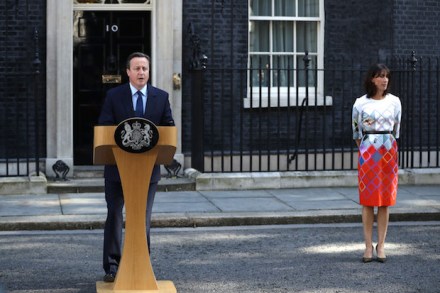David Cameron resigns, but not immediately
In an emotional but dignified statement, David Cameron has announced his resignation as Prime Minister. However, he will not resign immediately. Instead, he will stay to, in his phrase, ‘steady the ship’. But he wants a new Prime Minister in place by the Tory party conference this autumn. Sensibly, Cameron said that he himself would not trigger Article 50, the two year process for leaving the EU. He said that it should be up to the new Prime Minister to make that decision. Cameron will, one suspects, go down in history for this referendum. But it should be remembered that there is more to his premiership than that. He was


















